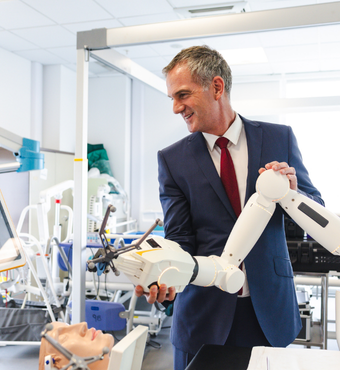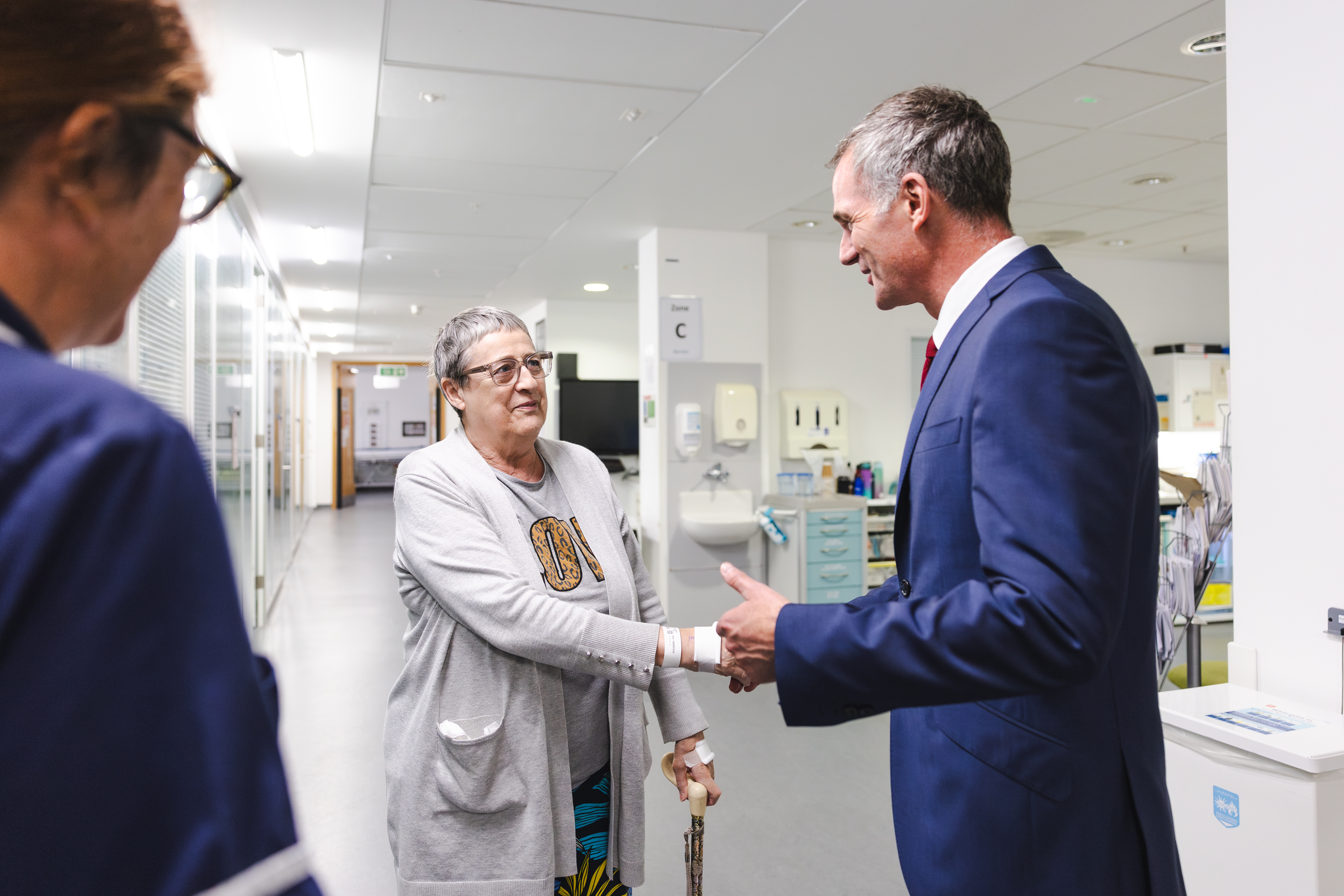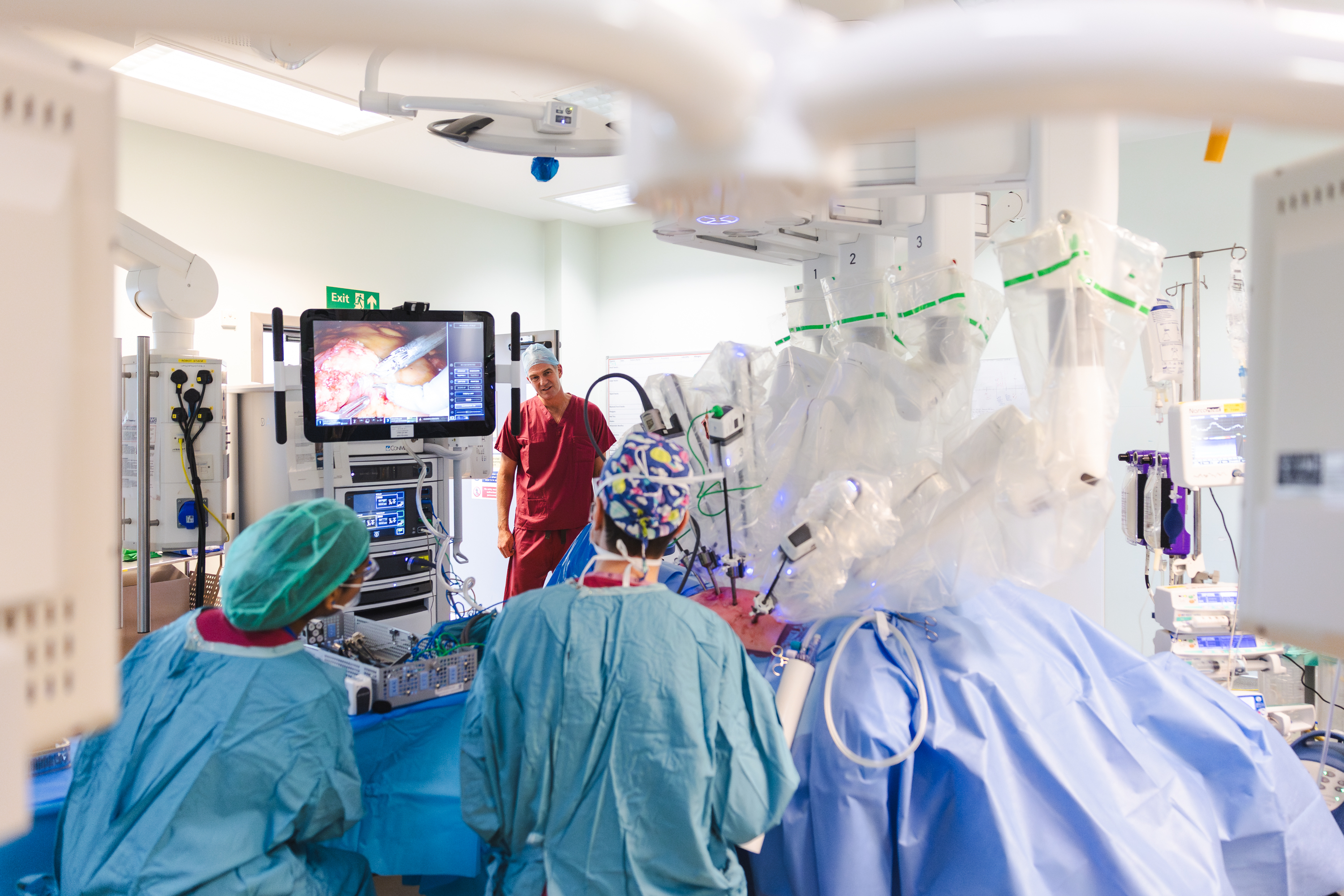
We were delighted to recently welcome the Rt Hon Peter Kyle MP, Secretary of State for Science, Innovation and Technology, to Southmead Hospital to see our surgical robots in action.
The Secretary of State saw how we’re using technology to transform patient care and innovate services across the Trust, including through using AI to improve our radiology services and using surgical robots across a range of specialties.
He also met a patient who had recently undergone robotic surgery at Southmead, and Trust executives and consultants who are championing the use of robotics and AI across our hospitals.
Professor Tim Whittlestone, Group Chief Medical and Innovation Officer, Bristol NHS Group, said: “Bristol is the key location in the UK for robotic developments in surgery, and it was a privilege to welcome the Secretary of State to Southmead to see our staff put their skills into practice.
“This work will help us ensure that our patients recover more quickly and have a better experience throughout the process. It also helps us make the best use of our theatre capacity, so more people can get the care they need sooner.”

Maria Kane, Group CEO, Bristol NHS Group, added: "I was delighted to welcome the Secretary of State to Southmead and show him the wonderful innovation taking place every day at our hospital. I want to thank everyone involved for making this visit a resounding success."
North Bristol NHS Trust has now completed more than 9,000 robotic surgeries and is the first Trust in the South West to own a dedicated gynaecology surgical robot. The Trust also featured as an example of excellence in robotic surgery in the recent NHS 10 Year Plan, setting out how the Government will transform and modernise the NHS by 2035.

Robotic surgery is kinder to patients, can offer shorter recovery times, reduced blood loss, reduced length of hospital stay and reduced rates of readmission.
These systems are already helping people with a wide range of health conditions, such as prostate and bladder cancer and gynaecology conditions like endometriosis.
NHS England estimates half a million operations will be supported by robotics every year by 2035.
